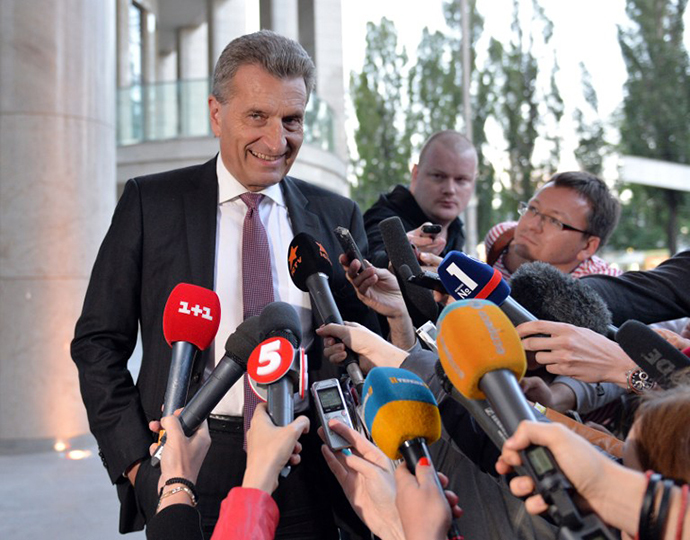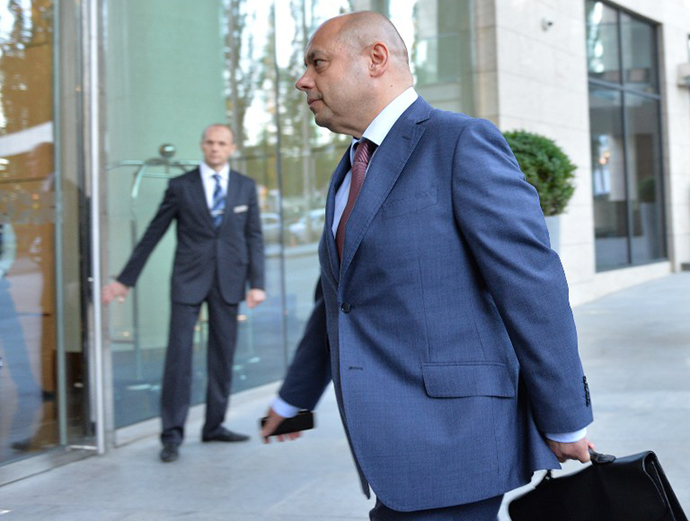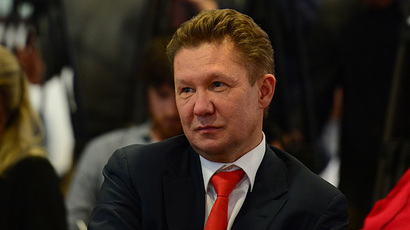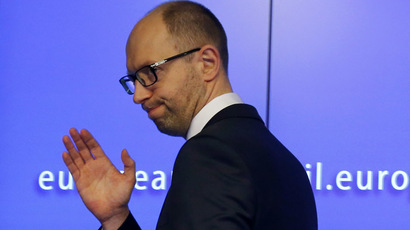Gas talks stall because Kiev has little ‘grasp of reality’
The Russian gas supply to Ukraine may be cut off on Monday after Kiev rejected all concessions offered by Moscow to settle Kiev’s gas debt. Chances are that the Ukrainian government is simply acting irrationally, some analysts say.
Kiev has not been paying for gas it imports from Russia for months, resulting in a multibillion dollar debt mounting. Russia says that it would invoke the prepay option of the standing contract and would only deliver as much gas as Kiev pays for in advance starting Monday. With Ukraine not willing to pay, this would mean an effective cut-off.
Russia offered a $100 discount to gas price roughly to the level that the Europeans pay. The offer includes recalculation of the current debt, which would revalue gas supplied since April with the discount applied, but Kiev rejected this plan, saying it’s not good enough.

“Ukraine has been offered a very generous discount and yet they still want more. It really is quite incredible – the nerve and the chutzpah of the Ukrainian government in all this. I don’t think any amount of discount would really satisfy Ukraine. They are spoiling for a fight here,” believes journalist Neil Clark.
Instead of compromising and settling the debt, Kiev seems to be preparing to raise the stakes. Over the past few months it has been pumping as much unpaid Russian gas into its underground gas storages as it could and now says it has enough to last till autumn.
Kiev’s desire to dictate the terms to Russia may have an irrational basis underneath, international law expert Alexander Mercouris told RT.
“It is difficult for the Ukrainians at this time to negotiate with Russians about anything. There are many people in Kiev who don’t like that,” he said.
“One of the fundamental problems with the way in which the Ukrainian authorities have been dealing with their multiple crises since they took power in February is that they don’t seem to show very much grasp of reality,” he added.
There are also concerns that Kiev would eventually simply siphon off gas it transits from Russia to European consumers, as was the case during previous rounds of gas stand-offs.

A more distant problem will arise in winter. Normally Ukraine would accumulate gas intended for Europe in summertime and deliver it in winter, because that’s how the Ukrainian gas pipeline system is designed. With gas from the storages use for Ukraine’s own consumption, there would simply not be enough for Europe next winter.
“The Ukrainian government has been intransigent and putting the people of Europe at risk. That’s why the EU is actually cautiously supporting Russia’s position at this time,” political analyst Bill Dores told RT.
Ukraine has for years enjoyed a politically motivated preferred treatment by Russia in terms of gas price discounts, he added. Now there is a government in Kiev hostile towards Russia, and Moscow has no reason to support it.
An escalating conflict would hurt all the three parties involved. But the Ukrainian government may be tempted to raise the stakes now, said Mercouris.
“There is an expectation that once things are deteriorating in Ukraine, it could be blamed on the Russians,” he explained.
With Ukrainian economy already in peril, painful austerity measures demanded by international creditors in exchange for loans and a political turmoil in the eastern provinces, Kiev has loads of blame to apportion in the future.














